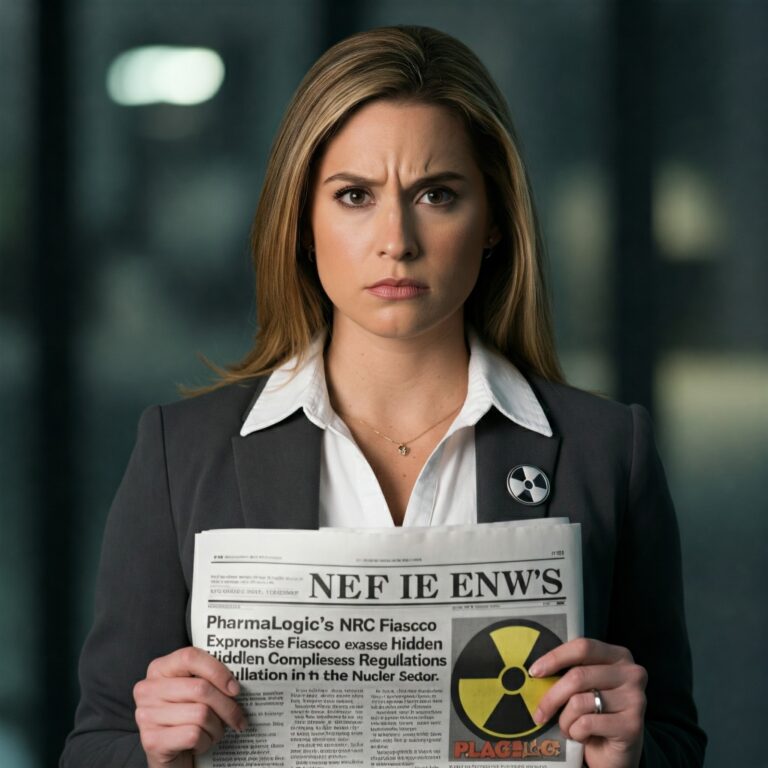Baltimore, MD – The recent $350,000 settlement between PharmaLogic Holdings Corporation and the U.S. government over falsely claimed small entity status to the Nuclear Regulatory Commission (NRC) is more than just another False Claims Act case. It’s a window into the intricate, often overlooked, world of regulations governing small businesses in the highly specialized radiopharmaceutical industry. While the headlines focus on the dollar amount, the real story lies in the nuanced interplay of regulatory compliance, corporate acquisitions, and the challenges faced by smaller players in a field dominated by stringent safety protocols and complex licensing requirements.
The Labyrinth of 10 C.F.R. § 171.16(c): More Than Just Numbers
At the heart of the matter lies 10 C.F.R. § 171.16(c), a seemingly innocuous regulation that defines “small entity” status for the purpose of reduced NRC fees. But this regulation is far from simple. It ties into the Small Business Administration’s (SBA) intricate size standards, outlined in 13 CFR Part 121, which vary significantly across different industries and sub-sectors. For radiopharmaceutical companies, navigating these interconnected regulations requires a deep understanding of not only their own financial metrics but also the specific North American Industry Classification System (NAICS) codes that apply to their operations.
The Acquisition Angle: How Growth Can Trigger Regulatory Pitfalls
PharmaLogic’s case also highlights a critical, yet often under-discussed, aspect of business growth: the regulatory impact of acquisitions. As companies expand through mergers and acquisitions, their size and revenue can quickly change, potentially pushing them out of the “small entity” bracket without their immediate realization. The nine subsidiaries involved in this settlement were acquired by PharmaLogic, suggesting a possible disconnect between the parent company’s growth strategy and the subsidiaries’ individual compliance obligations. This raises the question: how effectively are companies integrating newly acquired entities into their overall regulatory compliance framework, especially in specialized fields like nuclear medicine?
The Unsung Burden: Administrative Overhead for Small Players in a High-Stakes Industry
Beyond the financial implications of the reduced fees, this case sheds light on the disproportionate administrative burden faced by smaller radiopharmaceutical companies. Complying with NRC regulations, including annual fee assessments, requires dedicated resources and expertise that smaller entities may struggle to afford. The lure of a reduced fee, therefore, can be particularly strong, even if it means skirting the edges of eligibility criteria. This raises a broader question about the accessibility of regulatory compliance for smaller players in industries with high barriers to entry, such as the nuclear sector. Is the system inadvertently creating an environment where cutting corners becomes a tempting, if not necessary, survival tactic?
The Human Element: Oversight, Error, or Intent?
While the settlement avoids determining liability, it begs the question: what were the internal processes, or lack thereof, that led to nine separate subsidiaries submitting inaccurate filings over several years? Was it a systemic oversight, a series of individual errors, or a deliberate attempt to exploit a perceived loophole? Exploring the human element behind these compliance failures could offer valuable insights into the pressures and decision-making processes within companies operating in highly regulated environments.
Beyond Compliance: Fostering a Culture of Transparency in the Nuclear Sector
This case is not just about punishing wrongdoing; it’s an opportunity to foster a more transparent and supportive regulatory environment in the nuclear sector. The NRC, along with industry associations, could play a more proactive role in educating companies, particularly those undergoing growth or acquisitions, about the intricacies of small entity regulations. Clearer guidelines, readily available resources, and open communication channels could help prevent future violations and ensure a level playing field for all players.

